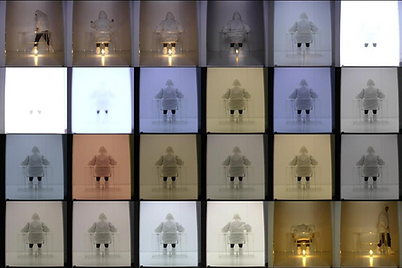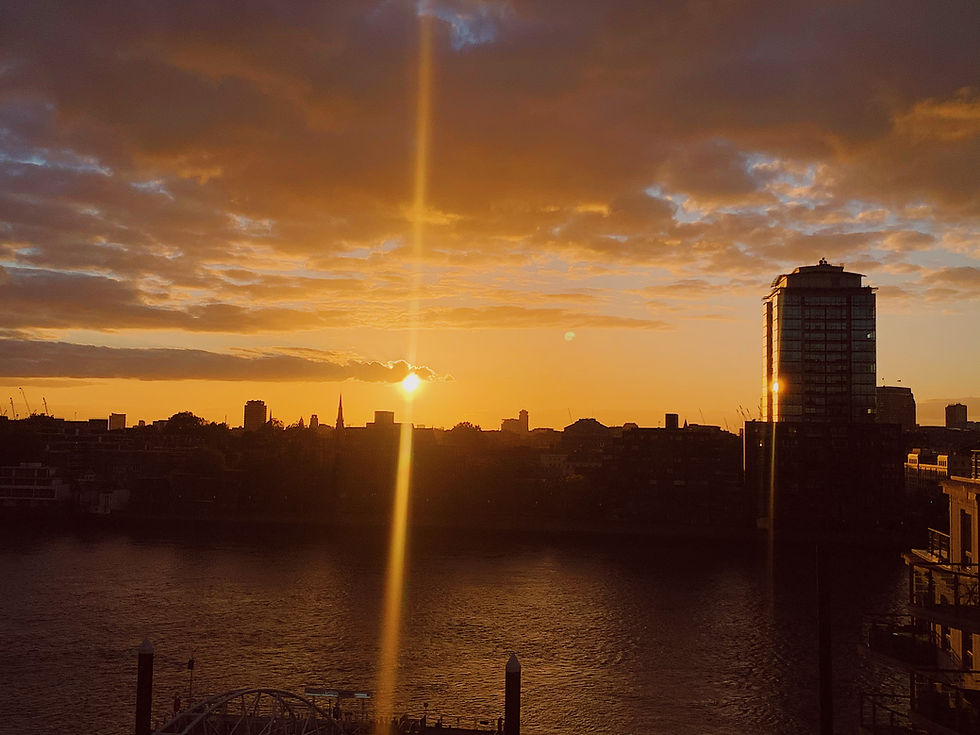Overview
The artworks of my degree show still observe the change of weather and how it relates to human emotion, so most of the medium of my art practices is sunlight. How does the weather affect people's emotions? In Chronobiology, it is due to the sunlight, the time of sunrise and sunset, and the frequent light, that people's emotions are affected. Therefore, in many works, the artist chose to add the time dimension to reflect the change of lighting and mood. On the other hand, light ACTS on people through the retinal nerve, and an atmosphere of interaction with the retinal nerve can directly affect people's emotions. This art practice expresses the relationship between weather and emotion in terms of the connection between time and sunlight, space and sunlight.
Schedule
1.Research 10days
Methodology, Artists, Chronobiology, SAD...
3.Collect 10days
Collect sunlight, record sunrise and sunset, take pictures
5.Install 3 days
Install the light installation
7.Measure 1 day
Measure the realistic space of the gallery and adjust
2.Brainstorm 2 days
Thinking how to express this research question
4.Materials 6 days
Order materials and test them
6. Cutting 3 days
Cut videos
DAYLIGHT

Expected presentation model
Budget: light 11*£10 =£110
Size: 80cm * 200cm
Medium:11 Daylight tubes
Introduction:The work itself is to create an interactive atmosphere with the effect of Daylight Tube on the human brain. Let the audience experience some feelings of light for themselves. In exploring the relationship between weather and emotion, the relationship is more specifically about sunlight and depression. As an artificial light that can replace sunlight to relieve depression, Daylight Tube is a very appropriate material. In addition to the lighting itself, in order to achieve eye-catching effect and let the audience feel the energy of light at first sight, works of sufficient size are needed to achieve an immersive experience.
The chronobiology of Anna Wirz-Justice

Anna Wirz- Justice has conducted pioneering research into light therapy and the chronobiology of depressive illness.
'Weekly depression self-ratings in a female SAD patient over 4 years (6 = threshold for depressive mood). Her winter depression episode began regularly in October. The first year illustrates the untreated natural course of the illness, with maximum depression ratings in December and January, declining to normal values in April. Light therapy begun in January of the second year induced a lasting euthymia. In year 3, light therapy began earlier, thus cutting off most of the depressive episode. Note that stopping light treatment in March resulted in a return of minor symptoms until the spontaneous remission in April. This is even more clearly seen in year 4, underlining the strongly seasonal nature of the illness. ' — Wirz-Justice A, Benedetti F, Terman M. Chronotherapeutics for affective disorders: a clinician's manual for light and wake therapy, 2nd[M]. Karger Medical and Scientific Publishers, 2013.
From Anna Wirz-Justice's research, it can be understood that light therapy can significantly help SAD. In the DAYLIGHT work, I chose 11 DAYLIGHT lights as the material to connect the natural light and artificial light.
Related Artists

Doug Wheeler

Olafur Eliasson
Both of the two artists create an interactive space with light. In a single colour atmosphere, the audience can only feel the space created by the artist. My artwork is also more about stimulating emotions through space, allowing the audience to experience the influence of light on their emotions by themselves.
View more:

London Fieldworks, Polaria
The work monitors the human brain for 24 hours, during which time the brain's response to light is recorded by the artist. Then an interactive space is created based on the data, in which the audience can directly experience the power of light.
SUNLIGHT
Date: May, 2020
Medium: Light,projector
Budget: £ 0
Introduction: This artwork explores figurative sunlight, the audiences would experience the figure of the sun directly, it would be a video installation. In the work, the changes of emotion are closely related to sunrise and sunset, and they can be reflected through the expression of time changes. I consider using some contrast to express the difference between sunlight. In the process, I collect a series of sunlight that research how to make an interactive atmosphere. The audiences experience brightness and darkness, warm colour and cold colour.
The work itself also adds some exploration of time, from sunrise to sunset, from day to night.
Images of sunlight






The sunset of every day is different. During my stay at home, I had a lot of time to observe the sun. It's the peak hours of light in the UK right now, and every day we have plenty of time to enjoy the sun and balance the depression of not being able to get out.
Related Artists



Intensely atmospheric … Impression, Sunrise (1872) by Claude Monet. Photograph: Heritage Images/Getty Images
Monet:he smoky light of early morning is shot through with red and purple in Monet's intensely atmospheric painting of a moment, a mood. Like a Wagnerian prelude, his sensual reverie promises some grandeur to come – not an opera, but simply the ordinary drama of another day.
This painting by Monet gives some inspiration to Contrastive Colour.
Expected presentation model
